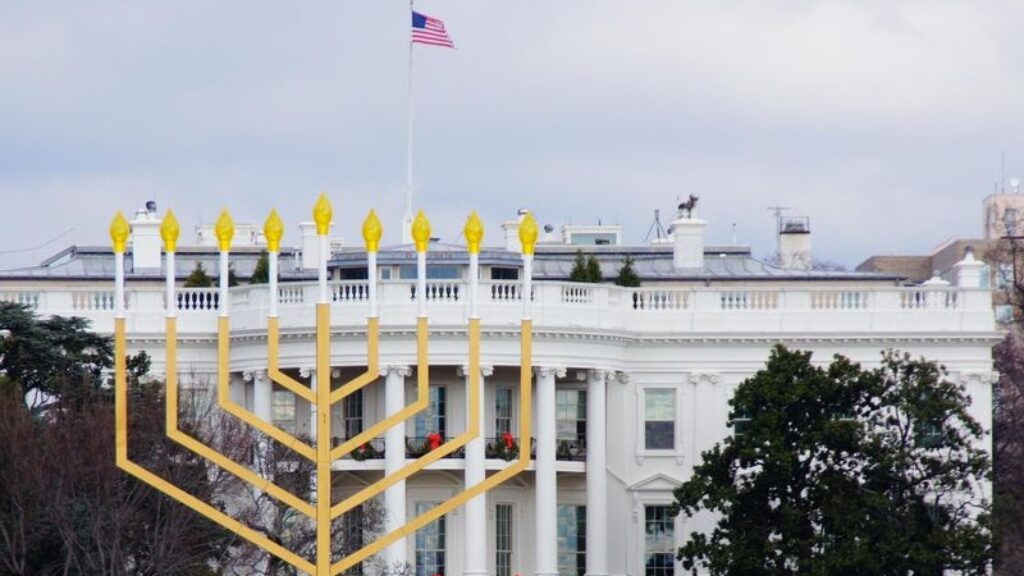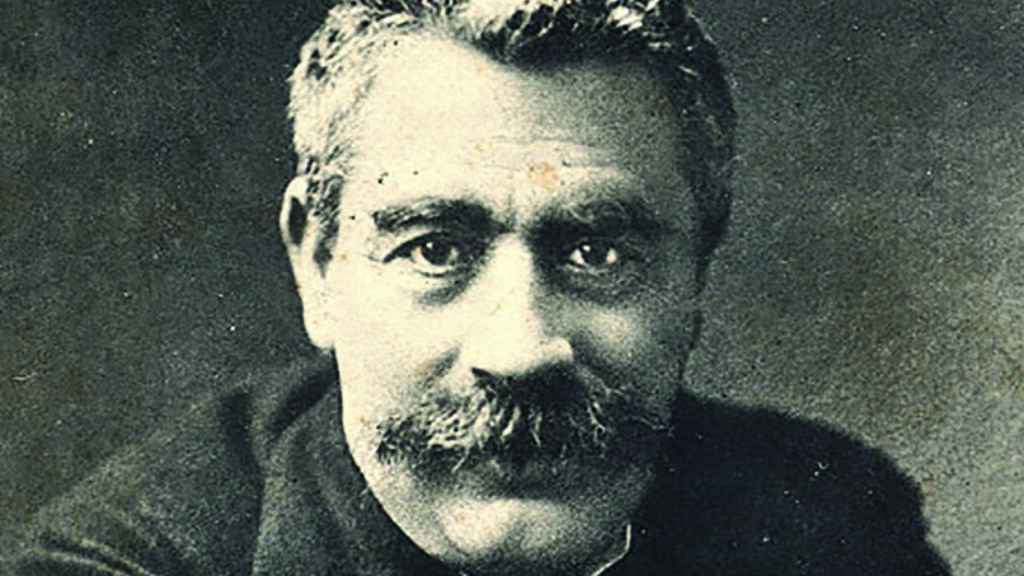Voting against Ourselves: American Jewry’s Paradox
BY ZACK GOLDSTEIN
The Jewish vote has long been sought after by both major American political parties, and has been key to victories for both sides of the political aisle. Despite being small in number, American Jews are represented exceptionally well in the political, cultural, and economic scene of the country, which gives us significant influence on the outcome of many of the country’s elections and political decision-making. Yet, when it comes to issues that matter most, many American Jews seem to abandon traditional Jewish values. This raises the question: Why do American Jews so frequently vote against our own interests and values?
As American Jewry underwent institutional development and transformation in the twentieth century, what was widely accepted as a “Jewish” ideal began to change. So much so that many Jews don’t actually think of themselves as voting against their values; they simply believe that core Jewish values encompass more progressive and liberal ideas such as tikkun olam. It’s what they’ve been taught their entire lives. Tikkun olam was originally created as a concept used to justify halakhic laws that are put in place for the greater good of the world. Now, however, tikkun olam has been completely flipped on its head, and is used in many liberal Jewish circles as a means of describing the Jewish promise to pursue social change.
However, these same social justice movements have now proven themselves to be enemies of the state of Israel, and pose serious threats to American Jews through explicit calls for violence. When Jews believe they must have an unadulterated allegiance to social action, they cite tikkun olam to justify their support of Jew-hating groups, and then believe they are doing the moral thing while simultaneously being true to their Jewish identities. In reality, neither is the case.
This issue does not have one simple cause; rather, it is multifaceted and has various contributing factors. The most blunt one being that, by all metrics, American Jews either are not prioritizing Judaism or simply aren’t steeped in our traditions. In a recent study done by Pew Research Center, only 27 percent of American Jews said that their Jewish ethnicity was a key aspect of their identity. This statistic is not surprising, especially since intermarriage rates continue to increase annually, and Jewish couples have, on average, less and less children. When we abandon the core of our community—the family—we effectively disown our traditional values.
Without prioritization of the Jewish family, there is nobody to pass on the traditions and values of the Jewish faith to future generations. Therefore, the younger generation grows up in the dark, learning little about the importance of their Jewish identity and therefore not knowing enough about their Judaism to prioritize it in the social movements they choose to join or in the way they choose to vote.
Another key reason why American Jews don’t mirror our tradition is the fact that the community has turned our backs on religion as a whole. The same Pew Research study reports that only a quarter of Jewish American adults believe in the biblical God, and just 12 percent claim that they attend weekly religious services. The especially shocking aspect of this figure is that each of these numbers are less than half of the ones reported by the average American. Maimonides’ primary and most important principle of Jewish faith is “Belief in the existence of the Creator, who is perfect in every manner of existence and is the Primary Cause of all that exists.” The Rambam clearly expresses that if nothing else, a Jew must believe in Hashem as the one true God. We have, however, strayed away from that key belief which unifies us. Without belief in the Jewish God, we lose a lot of the meaning that makes us a people. Without religion, there is no reason for Jews to attach any real value to our Jewish identity. If being Jewish is relegated to lighting candles on Hanukkah, not eating pork, and a Birthright trip to Israel, then Jewish values, beliefs, and traditions will be gradually discarded.
Historically, Jews have stood up for fellow minorities in America when they’ve faced injustice, since the Jewish people know the hardships of persecution. Jews fought alongside the civil-rights movement, famously partaking in Dr. Martin Luther King’s March on Washington. In return, Dr. King was a great friend to the Jewish people, and a staunch supporter of the state of Israel. Unfortunately, the social justice movements of today do not mirror the sentiments of Dr. King. Yet some Jews still march with and support the Black Lives Matter (BLM) movement, even after one of the group’s branches posted an image of a Hamas paraglider with the caption “I stand with Palestine,” and announced that Hamas’s “resistance must not be condemned but understood,” in the days following Hamas’s October 7 attack on Israel.
These grassroots movements aren’t just anti-Zionist; rather, these groups pointedly turn a blind eye to anti-Semitism as a whole. BLM, MeToo, and the majority of social justice movements have yet to condemn any of the anti-Semitic attacks occurring globally, and have been completely silent on matters such as the pogroms in Amsterdam and the murder of American Paul Kessler by a professor and pro-Palestinian activist.
Many American Jews are so committed to joining the fight for social justice that they utterly disregard the call for actions to be taken against Jews and the Jewish state by these organizations, and continue to support them, especially with their votes. According to a 2020 Pew Research Center survey of American Jews, just over half of American Jews (51 percent) identify as liberal, while 32 percent identify as moderates and 16 percent identify as conservatives. This is despite the notable contradiction that arises in aligning ourselves with the very radical social justice movements that have taken over progressive, and often liberal, institutions, which openly abhor our homeland and our values.
Fortunately, the tides are shifting, and there is still hope for American Jewry. Jews from all backgrounds have increasingly begun to value the protection of Israel, and the new age of American Jews is the most committed generation to religion and Jewish identity since WWII. According to the same Pew Research Center study, the youngest generation of American Jews is the most likely to be orthodox. While it is important to note that this generation also has the greatest number of unaffiliated Jews, who are much more likely to oppose Israel and join groups like Jewish Voice for Peace and Jews for Ceasefire, those in the age group who are religiously affiliated are very connected to Israel and value its protection more than past generations.
Although it is regrettable that it took the greatest attack on our people since the Holocaust for many to realize the importance of the Jewish state, it testifies to the true reason why Israel exists: to ensure the sovereignty and safety of the Jewish people, a guarantee they cannot receive anywhere else in the world.
As a solution, Jews should stop attempting to explain ourselves to and, more importantly, supporting people who detest us and our values, and instead turn to where we are truly appreciated and accepted. There are many politicians, on both sides of the political aisle, who are sympathetic to the American Jewish plight and stand up for Israel. For example, former and future President Trump’s nominee to be Ambassador to the United Nations, Elise Stefanik, bravely called out the hypocrisy of the Ivy League universities and their treatment of Jewish students on campus, playing a significant role in the resignations of the presidents of Penn, Harvard, and Columbia. Moreover, Democratic Representative Ritchie Torres has been a proud and outspoken advocate for Israel while also calling out the radical sect of the Democratic Party that has been alienating Jewish voters. The issue is not that there aren’t enough candidates who embody Jewish values, but rather that American Jews don’t always support those who do.
The paradox of a people voting against their own values is one embedded in American Jewry today. The politically traditional roots of Judaism clash harshly with the modern progressive movement that has overtaken significant institutions and assumptions of the Jewish community in the United States. It is undeniable that wherever Jews decide to direct our energy, allyship, and votes, the future of our people will be affected significantly. American Jews should feel empowered by our tradition and our teachings to align ourselves wisely.
Suggested Reading

Approaching Israel as American Jews, or Jewish Americans
The fulfillment of the Jewish dream has made the question of whether to prioritize our Jewish identity or that of our country of birth more complex.

Remaining an Or L’Goyim in a Post-October 7 World
BY GILA GRAUER October 7 was a day that will never be forgotten, not by Israelis nor by Jews all over the world, who all united to mourn the tragic…

Tal-Or Cohen Montemayor on the Surge in Online Anti-Semitism and Its National Security Implications
BY ESTHER LUVISHIS Social media is a significant part of everyone’s life in the twenty-first century, especially for the young. From X, formerly Twitter, to Instagram and Facebook, there is…

I.L. Peretz’s Legacy: Challenging Jewish Passivity
BY BENJIE KATZ If any American has heard of the shtetl, the little market towns where a significant portion of Jews in Eastern Europe lived until the early twentieth century,…